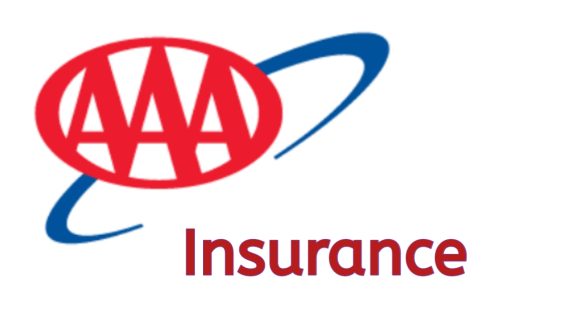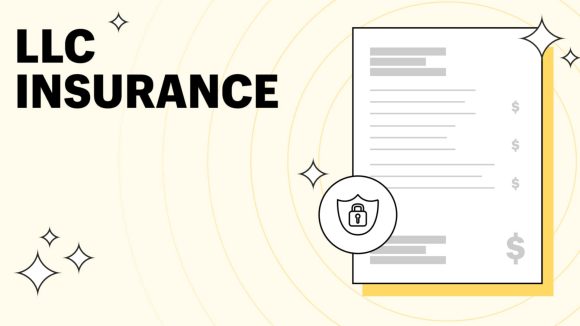
Business Liability Insurance
Business liability insurance is a critical aspect of protecting a company from financial ruin in the event of unforeseen circumstances. Whether a business is large or small, having the appropriate level of liability insurance can provide peace of mind and ensure that operations can continue smoothly even in the face of legal challenges or claims. From slip and fall accidents on the premises to allegations of professional negligence, business liability insurance offers valuable protection against various types of liability risks.
In addition to shielding a business from potential financial losses, liability insurance also plays a crucial role in maintaining a company’s reputation and credibility. When a business is properly insured, it sends a message to customers, vendors, and other stakeholders that the company takes its responsibilities seriously and is committed to upholding high standards of ethical conduct. By investing in liability insurance, businesses can demonstrate their commitment to accountability and transparency, which can have a positive impact on their overall brand image and help to build trust with key stakeholders.
Table of Contents:
| ☑️ Types of business liability insurance coverage ☑️ Why every business needs business liability insurance ☑️ How business liability insurance protects against lawsuits and claims ☑️ Factors to consider when choosing a business liability insurance policy ☑️ The impact of not having business liability insurance ☑️ The Importance of Business Liability Insurance |
Types of business liability insurance coverage
Business liability insurance is essential for protecting your company from potential legal and financial risks. There are several types of coverage available, each designed to address specific areas of liability that businesses may face. Understanding the different types of business liability insurance coverage can help you determine which policies are necessary to safeguard your assets and operations.
General liability insurance is one of the most common types of coverage for businesses. This policy provides protection against claims of bodily injury, property damage, and advertising injury. General liability insurance can help cover legal expenses, settlements, and judgments resulting from lawsuits filed by third parties. This coverage is crucial for businesses that interact with customers, vendors, or the general public on a regular basis.
Also read : Discover the Top 10 Most Affordable Car Insurance Companies
Professional liability insurance, also known as errors and omissions insurance, is designed to protect professionals from negligence claims related to their services or advice. This type of coverage is particularly important for businesses that provide consulting, financial, legal, or medical services. Professional liability insurance can help cover legal fees and damages in the event of a lawsuit alleging errors or omissions in the services provided.
Product liability insurance is essential for businesses that manufacture, distribute, or sell products. This coverage protects against claims of bodily injury or property damage caused by a faulty product. Product liability insurance can help cover legal costs, medical expenses, and compensation for injured parties. Businesses involved in the production or sale of goods should consider this type of coverage to mitigate the risks associated with potential product defects or malfunctions.
Commercial property insurance is another essential type of coverage for businesses that own or lease physical locations. This policy provides protection against damages to buildings, equipment, inventory, and other property caused by events such as fires, storms, theft, or vandalism. Commercial property insurance can help cover the cost of repairs or replacements, allowing businesses to recover quickly from unexpected losses.
Cyber liability insurance is becoming increasingly important as businesses rely more on digital technology and online operations. This coverage protects against data breaches, cyber-attacks, and other cybersecurity threats that could compromise sensitive information or disrupt business operations. Cyber liability insurance can help cover costs associated with data recovery, legal compliance, and notification of affected parties in the event of a cyber incident.
Employment practices liability insurance is designed to protect businesses against claims of discrimination, harassment, wrongful termination, or other employment-related issues. This coverage can help cover legal expenses, settlements, and judgments resulting from lawsuits filed by current or former employees. Employment practices liability insurance is crucial for businesses of all sizes to safeguard against the risks of workforce-related disputes.
Choosing the right types of business liability insurance coverage is essential for protecting your company from potential legal and financial risks. By understanding the various policies available and their specific areas of coverage, you can create a comprehensive insurance strategy that mitigates the liabilities associated with your business operations. Consult with an experienced insurance agent to assess your business needs and select the appropriate coverage to safeguard your assets and operations.
Why every business needs business liability insurance
Business liability insurance is a crucial investment for every business, regardless of its size or industry. This type of insurance provides protection against the financial risks associated with potential lawsuits, property damage, or injuries that may occur in the course of doing business. Without this essential coverage, a business could be left vulnerable to substantial financial losses that may threaten its very existence.
One of the primary reasons why every business needs business liability insurance is to protect against potential lawsuits. In today’s litigious society, lawsuits can arise from a wide range of circumstances, including accidents, injuries, property damage, or alleged negligence. Without liability insurance, a business could face significant legal expenses, court costs, and potential judgments that could bankrupt the company.
Also read : The General Insurance Quotes: Everything You Need to Know
Furthermore, business liability insurance can help safeguard a business’s assets and livelihood. In the event of a lawsuit, the insurance coverage can help cover legal fees, settlements, and judgments, which could save a company from financial ruin. Additionally, having liability insurance in place may also help protect a business’s reputation and credibility, as it demonstrates a commitment to responsible business practices and risk management.
Another important reason why every business needs business liability insurance is to comply with legal requirements and contractual obligations. Many industries and professions require businesses to have liability insurance as a condition of licensing or operating legally. Additionally, many contracts with clients, vendors, or landlords may also require proof of liability insurance as a way to protect all parties involved in a business transaction.
Moreover, business liability insurance can provide peace of mind to business owners and stakeholders. Knowing that the business is protected against potential risks and liabilities can alleviate the stress and uncertainty that often comes with running a business. This sense of security can allow business owners to focus on growing their businesses and serving their customers, rather than worrying about the what-ifs of potential lawsuits or accidents.
Business liability insurance is an essential tool for protecting a business against potential risks and liabilities. Every business, regardless of its size or industry, can benefit from having this type of insurance coverage in place. By investing in business liability insurance, businesses can protect their assets, safeguard their livelihoods, comply with legal requirements, and enjoy peace of mind knowing they are prepared for any unforeseen circumstances. Ultimately, having business liability insurance is not only a smart business decision; it is a critical component of ensuring the long-term success and sustainability of a business.
How business liability insurance protects against lawsuits and claims
Business liability insurance is a crucial aspect of safeguarding your business from potential risks and liabilities. It provides protection against lawsuits and claims that may arise from various sources, such as customers, employees, or third parties. Having the right coverage can make a significant difference in the financial stability and reputation of your business.
One of the primary ways that business liability insurance protects against lawsuits and claims is by covering legal expenses. In the event that your business is sued, the costs of hiring a lawyer, court fees, and potential settlements can quickly add up. Without insurance, these expenses could potentially bankrupt your business. Business liability insurance ensures that you have the financial resources to defend yourself in court and settle claims without depleting your business’s assets.
Moreover, business liability insurance also covers damages and compensation that may be awarded to the claimant. If your business is found liable for causing harm or damage to another party, such as a customer who slips and falls on your premises or a competitor who sues for trademark infringement, your insurance policy will cover the costs of any settlements or judgments. This can help protect your business from financial ruin and enable you to continue operating without disruption.
Also read : Exploring the Benefits of GEICO Home Insurance
Another critical aspect of business liability insurance is protection against personal injury claims. If an employee or customer is injured on your business premises or as a result of your products or services, you could be held legally responsible for their medical expenses, lost wages, and pain and suffering. Liability insurance can provide coverage for these claims, ensuring that your business is not forced to pay out of pocket for costly injuries.
Furthermore, business liability insurance can also protect your business from claims of negligence or misconduct. If a customer alleges that your business failed to meet professional standards or provided faulty products or services, you could face a lawsuit for negligence. With the right insurance coverage, you can defend against these claims and mitigate the financial consequences of any legal action taken against your business.
In addition to protecting your business assets, liability insurance can also safeguard your reputation. Lawsuits and claims can damage the reputation of your business and erode customer trust. By having the right insurance coverage in place, you can demonstrate to customers, employees, and business partners that you are a responsible and reliable business that takes its obligations seriously. This can help preserve your relationships with key stakeholders and maintain the goodwill of your brand.
Business liability insurance is an essential tool for protecting your business against the risks and liabilities that may arise from lawsuits and claims. It provides coverage for legal expenses, damages, personal injury claims, allegations of negligence or misconduct, and reputation management. By investing in the right insurance policy, you can safeguard your business’s financial stability, reputation, and long-term success. Don’t wait until it’s too late – make sure your business is properly insured against potential liabilities.
Factors to consider when choosing a business liability insurance policy
When running a business, one of the most important decisions you will make is choosing the right business liability insurance policy. This type of insurance helps protect you and your company from financial losses stemming from liabilities such as bodily injury, property damage, or legal costs. With the potential risks and uncertainties that come with operating a business, having the right insurance coverage can provide you with peace of mind and financial security.
When selecting a business liability insurance policy, there are several key factors you should consider to ensure you are adequately protected. One of the first factors to consider is the type of coverage offered by the policy. Different insurance providers offer varying types of liability coverage, such as general liability, professional liability, product liability, and more. It is crucial to assess your business operations and risks to determine the most suitable type of coverage for your specific needs.
Another important factor to consider is the coverage limits of the insurance policy. Coverage limits refer to the maximum amount that the insurance company will pay for a covered claim. It is essential to determine the appropriate coverage limits based on the nature of your business, its size, and potential liabilities. Selecting coverage limits that are too low could leave you vulnerable to financial losses in the event of a lawsuit or claim.
Also read : Unveiling the Unbeatable Benefits of AAA Car Insurance
Additionally, you should factor in the cost of the insurance policy when making your decision. While it is important to choose a policy that provides adequate coverage, you must also consider your budget and affordability. The cost of business liability insurance can vary depending on factors such as the type of coverage, coverage limits, the size of your business, and industry risks. It is advisable to compare quotes from multiple insurance providers to find a policy that offers the best value for your money.
When selecting a business liability insurance policy, it is also crucial to review the terms and conditions of the policy carefully. Make sure you understand what is covered, excluded, and any limitations or restrictions that may apply. You should also pay attention to the claims process and how to file a claim in the event of an incident. A thorough understanding of the policy terms will help you make informed decisions and avoid any surprises when it comes to filing a claim.
Lastly, it is essential to consider the reputation and reliability of the insurance provider when choosing a business liability insurance policy. Look for insurers with a strong financial standing, a track record of reliable claims processing, and positive customer reviews. A reputable insurer will provide you with the support and assistance you need when it comes to protecting your business and handling potential liabilities.
Selecting the right business liability insurance policy is a critical decision for any business owner. By considering factors such as the type of coverage, coverage limits, cost, policy terms, and insurer reputation, you can make an informed choice that provides you with the necessary protection and peace of mind. Investing in business liability insurance is an essential step in safeguarding your business against potential risks and uncertainties, ensuring its long-term success and sustainability.
The impact of not having business liability insurance
One of the most crucial aspects of running a business is protecting it from potential risks and liabilities. One way to do this is by investing in business liability insurance. This type of insurance provides coverage for a variety of risks, including property damage, bodily injury, and personal injury claims. While many business owners understand the importance of having liability insurance, there are still some who choose to operate without it.
The impact of not having business liability insurance can be significant and potentially devastating to your business. Without this coverage, your business could be vulnerable to lawsuits and legal claims that could result in costly settlements or judgments. In the event that a customer or employee is injured on your premises, you could be held liable for medical expenses, lost wages, and other damages. Without liability insurance, you would be responsible for paying these costs out of pocket, which could have a serious impact on your finances and the future of your business.
Similarly, if your business were to cause damage to someone else’s property, you could be facing a lawsuit that could result in significant financial losses. This could include damage to a customer’s home or vehicle, or damage to another business’s property. Without liability insurance, you would have to bear the burden of paying for these damages yourself, which could put your business at risk of bankruptcy or closure.
Also read : Ultimate Guide to Getting a State Farm Auto Insurance Quote
Furthermore, without liability insurance, your business could also be exposed to claims of negligence or professional misconduct. If a customer claims that your products or services caused harm or injury, you could be held legally responsible for their damages. This could result in costly legal fees and settlements that could drain your resources and tarnish your business’s reputation.
In addition to the financial risks, not having business liability insurance could also have a negative impact on your ability to secure contracts and partnerships. Many clients and vendors require proof of liability insurance before doing business with a company, as it demonstrates a commitment to protecting both parties in the event of unforeseen circumstances. Without this coverage, you could risk losing out on valuable opportunities and potentially damaging your business’s credibility and trustworthiness.
Ultimately, the decision to go without business liability insurance is a risky one that could have lasting consequences for your business. While it may seem like an unnecessary expense in the short term, the potential costs of not having this coverage far outweigh the premiums paid for insurance. By investing in business liability insurance, you can protect your business from unforeseen risks and liabilities, safeguard your financial stability, and ensure the long-term success of your business.
In conclusion, business liability insurance is a crucial investment for any business, big or small. It provides protection against unforeseen circumstances and potential financial losses that could threaten the stability and reputation of a company. By ensuring adequate coverage, businesses can safeguard their assets, employees, and bottom line in the event of lawsuits, accidents, or other liabilities. Prioritizing business liability insurance is not only a sound financial decision, but also a critical means of safeguarding the long-term success and viability of a business.
| tags: Business Liability Insurance,business liability insurance,professional liability insurance,general liability insurance,business general liability insurance,Business Liability Insurance,business liability insurance,professional liability insurance,general liability insurance,business general liability insurance |












